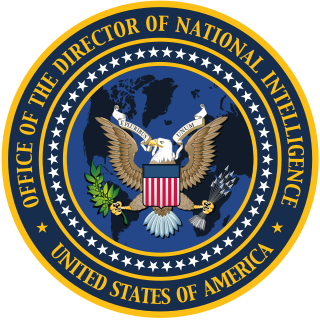Related Research Articles

Dennis MacAlistair Ritchie was an American computer scientist. He is most well-known for creating the C programming language and, with long-time colleague Ken Thompson, the Unix operating system and B programming language. Ritchie and Thompson were awarded the Turing Award from the ACM in 1983, the Hamming Medal from the IEEE in 1990 and the National Medal of Technology from President Bill Clinton in 1999. Ritchie was the head of Lucent Technologies System Software Research Department when he retired in 2007. He was the "R" in K&R C, and commonly known by his username dmr.

The Next-Generation Secure Computing Base is a software architecture designed by Microsoft which aimed to provide users of the Windows operating system with better privacy, security, and system integrity. NGSCB was the result of years of research and development within Microsoft to create a secure computing solution that equaled the security of closed platforms such as set-top boxes while simultaneously preserving the backward compatibility, flexibility, and openness of the Windows operating system. Microsoft's primary stated objective with NGSCB was to "protect software from software."

Surveillance is the monitoring of behavior, many activities, or information for the purpose of information gathering, influencing, managing or directing. This can include observation from a distance by means of electronic equipment, such as closed-circuit television (CCTV), or interception of electronically transmitted information like Internet traffic. It can also include simple technical methods, such as human intelligence gathering and postal interception.

ZDNET is a business technology news website owned and operated by Red Ventures. The brand was founded on April 1, 1991, as a general interest technology portal from Ziff Davis and evolved into an enterprise IT-focused online publication.

The director of national intelligence (DNI) is a senior, cabinet-level United States government official, required by the Intelligence Reform and Terrorism Prevention Act of 2004 to serve as executive head of the United States Intelligence Community (IC) and to direct and oversee the National Intelligence Program (NIP). All IC agencies report directly to the DNI. The DNI also serves, upon invitation, as an advisor to the president of the United States, the National Security Council and the Homeland Security Council on all intelligence matters. The DNI, supported by the Office of the Director of National Intelligence (ODNI), produces the President's Daily Brief (PDB), a top-secret document including intelligence from all IC agencies, handed each morning to the president of the United States.

An EyeTap is a concept for a wearable computing device that is worn in front of the eye that acts as a camera to record the scene available to the eye as well as a display to superimpose computer-generated imagery on the original scene available to the eye. This structure allows the user's eye to operate as both a monitor and a camera as the EyeTap intakes the world around it and augments the image the user sees allowing it to overlay computer-generated data over top of the normal world the user would perceive.

Thomas Penfield Jackson was an American jurist who served as a United States District federal judge of the United States District Court for the District of Columbia.
Quintessenz is a civil liberties advocacy organization based in the Museumsquartier in Vienna, Austria.
This is a timeline of events in the history of networked file sharing.
Lawrence Moser "Larry" Breed was a computer scientist, artist and inventor, best known for his involvement in the programming language APL.

The Computers, Freedom and Privacy Conference is an annual academic conference held in the United States or Canada about the intersection of computer technology, freedom, and privacy issues. The conference was founded in 1991, and since at least 1999, it has been organized under the aegis of the Association for Computing Machinery. It was originally sponsored by CPSR.

Christopher Bryan Hecker is an American video game programmer and commentator. He is the founder of the gaming company Definition Six and best known for his engineering work on Will Wright's 2008 game Spore. Hecker is an advocate for indie game development and co-founder of the Indie Game Jam. He has written a number of influential articles on programming and has been an editor for Game Developer Magazine and the Journal of Graphics Tools.
James Dalton Bell is an American crypto-anarchist who created the idea of arranging for anonymously sponsored assassination payments via the Internet, which he called "assassination politics". He was imprisoned on felony charges of tax evasion in 1997. In 2001, Wired called Bell "[o]ne of the Internet's most famous essayists" and "the world's most notorious crypto-convict".

CNET is an American media website that publishes reviews, news, articles, blogs, podcasts, and videos on technology and consumer electronics globally. CNET originally produced content for radio and television in addition to its website and now uses new media distribution methods through its Internet television network, CNET Video, and its podcast and blog networks.
Harvey Allen Silverglate is an attorney, journalist, writer, and co-founder of the Foundation for Individual Rights in Education (FIRE).

Joe Grand is an American electrical engineer, inventor and hardware hacker known in the hacker community as Kingpin. He achieved mainstream popularity after his appearance on Prototype This!, a Discovery Channel television show. He specializes in, "finding security flaws in hardware devices and educating engineers on how to increase the security of their designs". Grand has testified before the U.S. Senate Committee on Governmental Affairs regarding government and homeland computer security under his internet handle, Kingpin.
Magic Lantern is keystroke logging software created by the United States' Federal Bureau of Investigation (FBI). Magic Lantern was first reported in a column by Bob Sullivan of MSNBC on November 20, 2001 and by Ted Bridis of the Associated Press.

The Intellectual Property Enforcement Act of 2007, or S.2317, was a bill proposed in the 110th session of the United States Congress that would strengthen intellectual property laws in the United States by amending titles 17 and 18 of United States Code as well as the Trademark Act of 1946. It was written by Senator Patrick Leahy (D-VT) and co-sponsored by John Cornyn (R-TX) and Arlen Specter (D-PA). Primarily, the bill would allow the Department of Justice to press civil charges against file-sharers and award restitution to the copyright owner. This is the third time similar legislation has gone through the United States Senate without passing.

The Online Protection and Enforcement of Digital Trade Act is a bill introduced in the United States Congress proposed as an alternative to the Stop Online Piracy Act and PROTECT IP Act, by Senator Ron Wyden of Oregon, a Democrat, and Representative Darrell Issa of California, a Republican. The text of the bill is available for public comment at keepthewebopen.com.

Martin Ford is a futurist and author focusing on artificial intelligence and robotics, and the impact of these technologies on the job market, economy and society.
References
- ↑ "AngelList web site" . Retrieved June 30, 2015.
- ↑ "Recent Media Inc" . Retrieved June 30, 2015.
- ↑ "Recent beta has been published". June 26, 2015. Retrieved June 30, 2015.
- ↑ McCullagh, Declan (November 20, 2000). "ICANN Use More Web Suffixes". The Wall Street Journal . wsj.com. Retrieved June 30, 2015.
- ↑ McCullagh, Declan (June 1999). "Inside risks: risks of Y2K". Association for Computing Machinery . acm.org. 42 (6): 144. doi:10.1145/303849.303872. S2CID 6500510 . Retrieved June 30, 2015.
- ↑ McCullagh, Declan (Fall 2001). "Technology as Security" . harvard.edu. Retrieved June 30, 2015.
- ↑ McCullagh, Declan (September 12, 1997). "In Defense of Libertarianism". Wired News. wired.com. Archived from the original on October 21, 2008. Retrieved September 16, 2008.
- ↑ McCullagh, Declan (August 19, 2009). "Welcome To "Taking Liberties"". CBS News . cbsnews.com. Retrieved August 28, 2009.